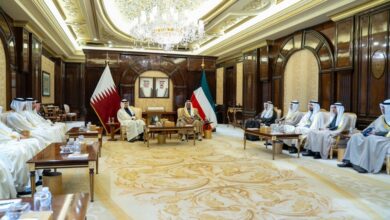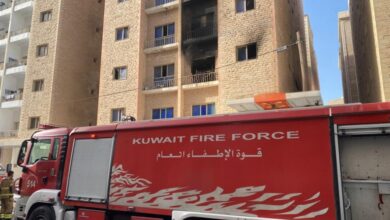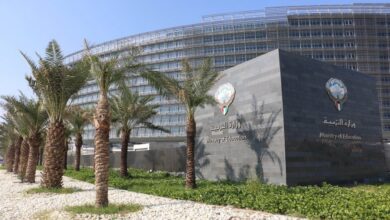August 2: A Homage to Martyrs, a Tribute to National Unity
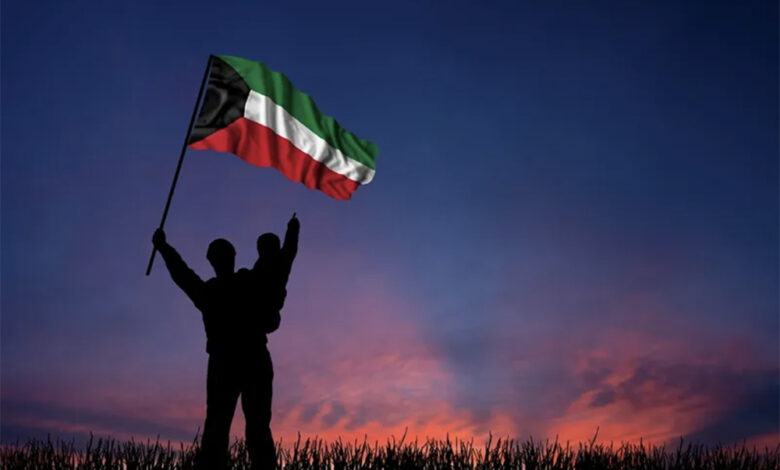
The Times Kuwait Report
Saturday, 2 August this year marked the 35th anniversary of the vicious Iraqi invasion of Kuwait in 1990. This indelible day still remains poignant in the collective consciousness of a nation traumatized by the agony of the invasion and horrors of a seven-month long occupation more than three decades ago.
The second of August each year is a solemn day when we pay respects to the martyrs and to all who stood steadfastly with the nation and its sovereignty. This day serves as a testament to Kuwait’s ability to rise above adversity, showing the world a rare example of unity, humanity, transcendence, and tolerance. While that fateful day 35 years ago is a stark reminder of the tragedy of aggression, it is also an attestation of the ultimate triumph of a nation’s resilient spirit.
Remembering both triumphs and tragedies in life and not being overwhelmed by either, is a human trait that has engendered the progress of humanity through eons. Science shows us that remembrance is crucial for growth; recollecting past experiences of trauma or grief is known to be cathartic, as it allows our mind to process sorrow, acknowledge a loss, find meaning to a painful event, to heal, and to reconcile.
Recalling a past event also helps build resilience, it enables us to pick up, and to move forward a key ingredient in human development..
In particular, the annual remembrance of a tragic and traumatic event in a nation’s history such as a natural disaster, an aggression, or an invasion, is vital, as it contributes to a sense of collective identity, connecting individuals to their shared history, culture, and values.
It allows us to acknowledge and honor the sacrifices made by individuals and groups, and the ultimate price paid by martyrs to a cause. Studies have shown that collective acts of remembrance also strengthens community bonds and creates a shared sense of purpose that fosters social cohesion and preserves cultural heritage for future generations. Recalling a tragic incident also allows us to examine the causes and consequences of the event and avoid or prevent similar harrowing experiences in future.
Remembering 2 August provides us with a similar opportune moment to build a better, stronger, more resilient, peaceful and equitable Kuwait. It also reminds us to solemnly bow our heads in honor and gratitude to the countless men and women who stood up to the invasion. Acting individually or collectively, these bravehearts stood firm in the face of a brutal invasion and occupation. Many of them ended up as martyrs, paying with their lives for the freedom and sovereignty we enjoy today.
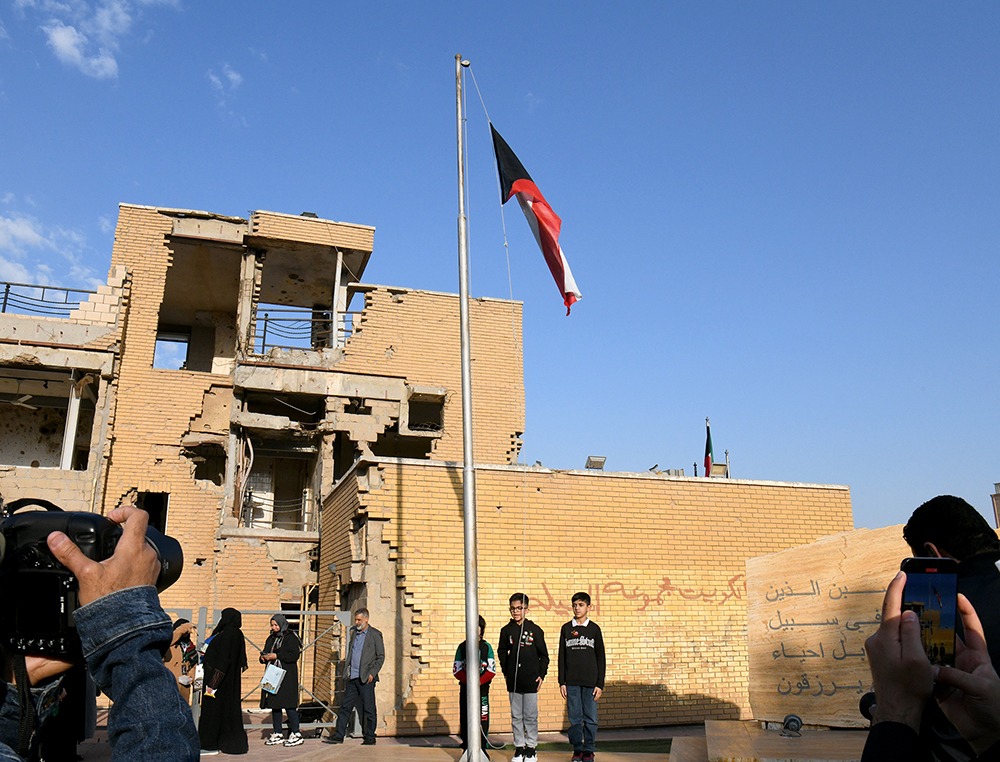
The invasion, occupation and subsequent liberation of Kuwait should be etched deep in our national consciousness. If we allow 2 August to slowly fade from our memories, the sacrifices of martyrs and hardships endured by people through the invasion and occupation will have been in vain. We need to remember that those who resisted the invasion and occupation, acted not only to safeguard their homes, families, and friends, but also to protect the sovereignty and integrity of Kuwait, and the rights of people to a life of their choice, in peace under a free Kuwait flag.
We must embrace and remember 2 August even more fervently with each passing year and decade, and never allow it to be erased or diluted from our national sentience. Perhaps the authorities will formalize this day as a national Remembrance Day, and build a dedicated monument to honor the martyrs, and to pay tribute to the resilience, steadfastness, and unity displayed by the nation in the face of a vicious invasion and seven-month long occupation.
A dedicated Remembrance Day will remind generations to come of the sacrifices made by their forebears, as well as the horrors of wars and conflicts, and the need for peace. It will also help foster in future generations the value of freedom, and that eternal vigilance is the price of freedom. Vigilance not just against external menaces, but also from internal threats to national unity, identity, and sovereignty, as well as to subversions of democratic processes.
For those born after 2 August, or did not live through the invasion and occupation, those brutal days and months may be nothing more than imaginative stories far removed from their daily lives. This raises the importance of instilling national pride and patriotic sense in children from a very young age. In this regard, the ‘Education Reform Plan for 2025-2027’, presented last week by the Minister of Education Eng. Sayed Jalal Al-Tabtabaei, is a step in the right direction.
The planned reforms include updating curriculums from kindergarten to ninth grade, with the focus on shaping young people’s awareness, and planting the seeds of loyalty and belonging in them, as well as promoting national identity as a firm pillar that safeguards the country’s freedom, security and stability. The second of August should serve to remind future generations of their responsibility to sustain the peace and freedom bestowed on them, and pledge to keep the flag of freedom flying high over Kuwait forever.
On this occasion, a look back on history in local media is pertinent: The treacherous assault and subsequent heinous occupation of Kuwait remains the darkest chapter in the country’s history. The forces of the former Iraqi regime aimed to erase Kuwait’s identity, sovereignty, and existence as an independent state and a respected member of the international community.
The invasion and occupation was not only a military agenda, it was also a political strategy aimed at dismantling an entire nation. But what the invaders did not anticipate was the firm will and unity of the Kuwaiti people. From the earliest moments of the invasion, the Kuwaiti people and leadership displayed unparalleled national unity and defiance against the aggression.
As the occupation dragged on, the Iraqi regime intensified its atrocities, looting and destroying public and private properties, as well as killing and maiming resistance fighters and innocent citizens. Despite these horrendous acts, the people stood firm against the aggression, rejected the occupation’s false legitimacy, and rallied around their rightful leadership, igniting a national epic that culminated in the liberation of Kuwait on 26 February 1991.
In the waning days of the occupation, realizing their imminent defeat, the Iraqi forces unleashed a scorched-earth policy. It set ablaze 752 oil wells, sabotaged infrastructure, planted mines, dug oil trenches, and released oil into the seas. These vicious acts caused one of the worst environmental disasters in history. In contrast, Kuwait’s political leadership rose to the occasion with courage and foresight.
The late Amir Sheikh Jaber Al-Ahmad, Father Amir Sheikh Saad Al-Abdullah, and then-Foreign Minister Sheikh Sabah Al-Ahmad (later Amir) played historic roles in mobilizing international support and navigating the crisis with wisdom and determination. Diplomacy became Kuwait’s most potent weapon, uniting the Arab world and galvanizing global support, achieving a rare international consensus for liberation and justice.
Globally, the response was swift and resolute. The UN Security Council issued Resolution 660, condemning the invasion and demanding Iraq’s immediate withdrawal. What followed at the United Nations was a succession of binding resolutions under Chapter VII, laying the legal foundation for the formation of a powerful and righteous international coalition to liberate Kuwait.
Today, the annual August 2 commemoration is marked not by anger, but by remembrance, resolve, and a call for peace. Kuwait has turned tragedy into testimony—proof of a people’s strength, a leadership’s wisdom, and a nation’s unshakeable values. On this 2 August let us rededicate ourselves to these noble values.
Follow The Times Kuwait on X, Instagram and Facebook for the latest news updates







